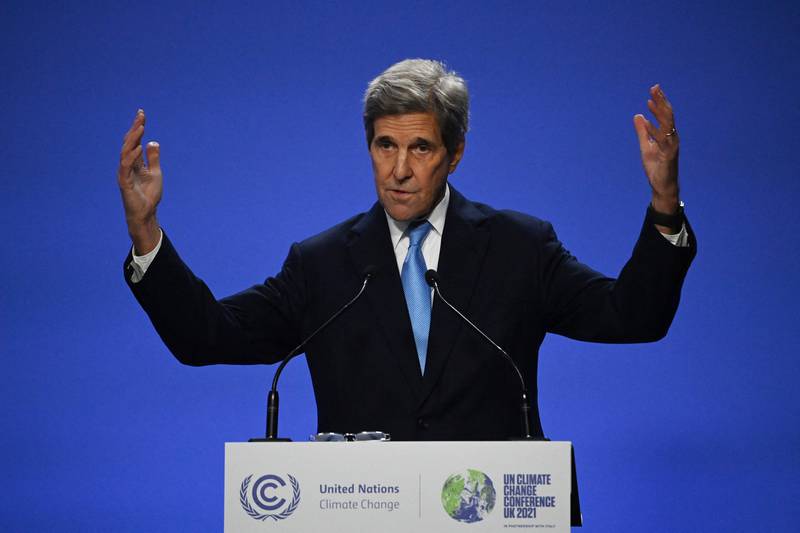US and China agree on emissions deal in bid to save UN climate talks

The US and China, the world's two largest emitters of carbon dioxide, unveiled a deal to ramp up co-operation tackling climate change, including cutting methane emissions, phasing out coal consumption and protecting forests.
The framework agreement was announced by US climate envoy John Kerry and his Chinese counterpart Xie Zhenhua at the UN climate conference in Scotland, billed by both as way to tip the summit towards success.
Alok Sharma, head of the UN climate conference, had earlier recognised that countries' climate commitments so far in the talks would do too little to tame global warming and urged them to “get to work” to strike an ambitious deal over the remaining two days of talks.
“Together we set out our support for a successful Cop26, including certain elements which will promote ambition,” Mr Kerry told a news conference about the deal between Washington and Beijing.
“Every step matters right now and we have a long journey ahead of us.”
Mr Xie told reporters that the deal would lead to China strengthening its emissions-cutting targets.
“Both sides will work jointly and with other parties to ensure a successful Cop26 and to facilitate an outcome that is both ambitious and balanced,” Mr Xie said.
A first draft of the Cop26 deal released earlier in the day received a mixed response from climate activists and experts.
Representatives from almost 200 countries in Glasgow have until the close of the two-week meeting on Friday to agree on a final text.
In an implicit acknowledgement that current pledges were insufficient to avert climate catastrophe, the draft asks countries to “revisit and strengthen” by the end of next year their targets to reduce greenhouse gas emissions up to 2030.
EU climate policy chief Frans Timmermans told Reuters the US-China agreement inspired hope.
“It's really encouraging to see that those countries that were at odds in so many areas have found common ground on what is the biggest challenge humanity faces today,” he said.
“It shows also that the US and China know this subject transcends other issues. And it certainly helps us here at Cop to come to an agreement.”
Negotiations are still likely to be fierce over the next two days.
While some developed countries point the finger at major polluters such as China, India and Russia, poorer nations accuse the rich world of failing to keep promises of financial help to deal with the ravages of climate change.
As delegations locked horns over the wording of the final statement, a group of countries, companies and cities composed a pledge committed to phasing out fossil fuel-powered vehicles by 2040.
The overarching goal of the conference is to keep alive hopes of capping global temperatures at 1.5°C above pre-industrial levels, which is unachievable based on most countries' current emissions-cutting pledges.
That aspirational target was set out in the 2015 Paris Agreement. Since then, scientific evidence has shown that crossing the 1.5°C threshold will unleash worse rises in sea levels, floods, droughts, fires and storms than those already occurring, with irreversible consequences.
